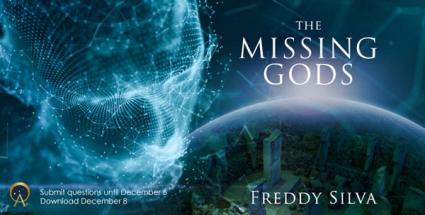
Could the global accounts of an ancient forgotten race of tall, long-headed people be true?
Humanity’s recent development was the subject of an investigation commissioned by NASA, which pointed to a disturbing trend in evolved civilizations ‘suddenly’ appearing completely developed, to technology and agriculture ‘suddenly’ appearing around 8000 BC, and to science, mathematics, and astronomy ‘suddenly’ manifesting in hotspots like Mesopotamia, Egypt, Yucatan, Peru, Japan, and China. What all these cultures share in common is the assertion that they inherited a civilization lost to a catastrophe caused by a fragmented meteorite, and an accompanying global flood that closed the Younger Dryas circa 9700 BC.
Freddy Silva takes us on a global tour to Easter Island to meet the Urukehu, described as tall, fair-skinned, red-haired with green eyes, sometimes blonde with blue eyes, and beards; the older moai, with their Caucasian features, extended chins, and hint of goatee, are stylized images of these flood gods; to Tiwanaku, Puma Punku, and a third unrecognized site in the Andes to meet the ‘People of the Serpent’, described as very tall, fair-skinned, red-haired, and featuring elongated skulls and their DNA linked to the region of the Black Sea and what used to be Mesopotamia. We travel to Egypt to meet the Aku Shemsu Hor — Shining Ones, Followers of Horus, described as between eight-and-a-half to 10 feet tall; they too were longheads. The Aku Shemsu Hor might have had a presence on Malta. Tidal waves once dumped 7,000 people, animals, and utensils into the Hypogeum of Hal Saflieni, including hundreds of elongated skull people.
Could the Maltese longheads be the same group of tall flood gods who escaped a sinking land in the Atlantic and fled eastwards? From Gobekli Tepe we see the astronomical tower of Harran, where human activity was present by 8000 BC. Harranu, as it was known, means ‘Enclosure of Anu’, another group of antediluvian gods. The last wisdom keeper of Tongareva, one of the Cook Islands, tells of a group of gods who arrived from Mesopotamia circa 3000 BC: red-haired, fair-skinned sages whom they called Tuanake and this brotherhood had been present in the Pacific 6,000 years earlier, specifically on Easter Island, where a platform commemorates them: Ahu Hananakou. So concludes the circle. Who were these people? Where did they come from? And what did they want with us?
 is a best-selling author, and leading researcher of ancient civilizations, restricted history, sacred sites, and their interaction with consciousness. He is also a leading expert on crop circles.
is a best-selling author, and leading researcher of ancient civilizations, restricted history, sacred sites, and their interaction with consciousness. He is also a leading expert on crop circles.
He has published six books in six languages: The Missing Lands: Uncovering Earth’s Pre-flood Civilization; The Divine Blueprint: Temples, Power Places, and the Global Plan to Shape The Human Soul; The Lost Art of Resurrection: Initiation, Secret Chambers and the Quest for the Otherworld; First Templar Nation: How the Knights Templar Created Europe’s First Nation-state and a Refuge for the Grail; Secrets In The Fields: The Science and Mysticism of Crop Circles and Chartres Cathedral: The Missing or Heretic Guide
Described by one CEO as "perhaps the best metaphysical speaker in the world right now,” for two decades he has been an international keynote speaker, with notable appearances at the International Science and Consciousness Conference, the International Society For The Study Of Subtle Energies & Energy Medicine, and the Association for Research and Enlightenment, in addition to appearances on Gaia TV, History Channel, BBC, and radio shows such as Coast To Coast.
He is also a documentary filmmaker, art photographer, and leads private tours to sacred sites in England, France, Egypt, Portugal, Yucatan, Malta, Peru/Bolivia, and Scotland.
Check out his book The Missing Lands: Uncovering Earth’s Pre-flood Civilization. Available direct from the author at www.invisibletemple.com
